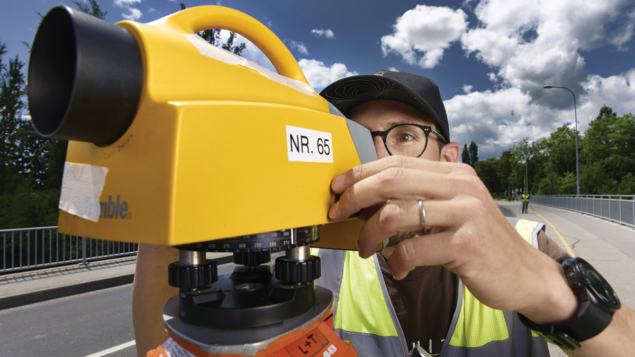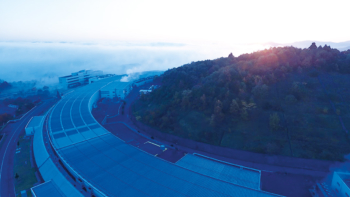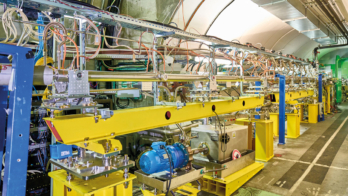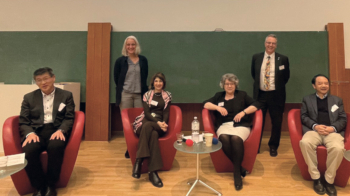
CERN surveyors have performed the first geodetic measurements for a possible Future Circular Collider (FCC), a prerequisite for high-precision alignment of the accelerator’s components. The millimetre-precision measurements are one of the first activities undertaken by the FCC feasibility study, which was launched last year following the recommendation of the 2020 update of the European strategy for particle physics. During the next three years, the study will explore the technical and financial viability of a 100 km collider at CERN, for which the tunnel is a top priority. Geology, topography and surface infrastructure are the key constraints on the FCC tunnel’s position, around which civil engineers will design the optimal route, should the project be approved.
The FCC would cover an area about 10 times larger than the LHC, in which every geographical reference must be pinpointed with unprecedented precision. To provide a reference coordinate system, in May the CERN surveyors, in conjunction with ETH Zürich, the Federal Office of Topography Swisstopo, and the School of Engineering and Management Vaud, performed geodetic levelling measurements along an 8 km profile across the Swiss–French border south of Geneva.
Such measurements have two main purposes. The first is to determine a high-precision surface model, or “geoid”, to map the height above sea level in the FCC region. The second purpose is to improve the present reference system, whose measurements date back to the 1980s when the tunnel housing the LHC was built.
“The results will help to evaluate if an extrapolation of the current LHC geodetic reference systems and infrastructure is precise enough, or if a new design is needed over the whole FCC area,” says Hélène Mainaud Durand, group leader of CERN’s geodetic metrology group.
The FCC feasibility study, which involves more than 140 universities and research institutions from 34 countries, also comprises technological, environmental, engineering, political and economic considerations. It is due to be completed by the time the next strategy update gets under way in the middle of the decade. Should the outcome be positive, and the project receive the approval of CERN’s member states, civil-engineering works could start as early as the 2030s.





